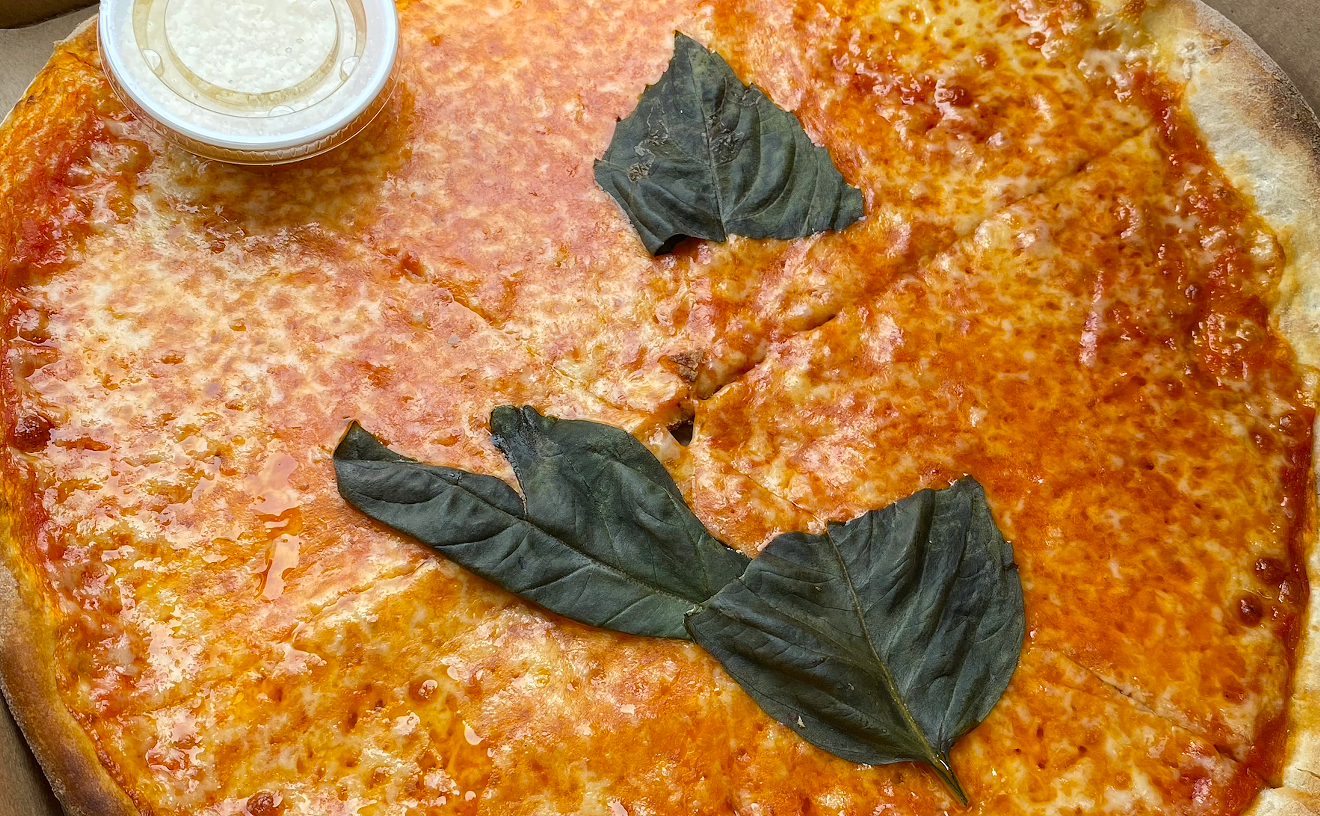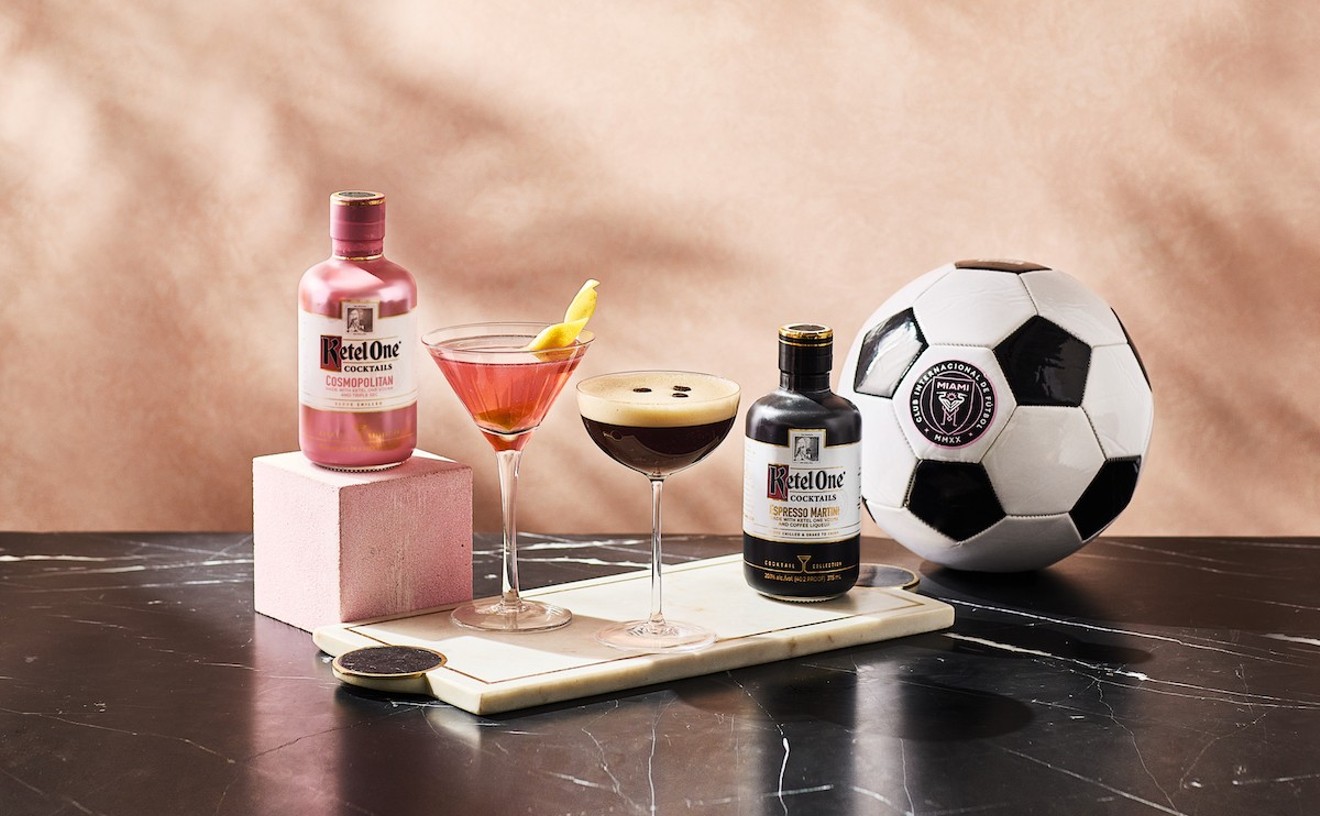After months of anticipation (and a few delays), the new farm-to-table eatery Market 17 is now open on 17th Street in Fort Lauderdale. The restaurant is no small undertaking. All dishes are prepared from scratch. It serves ostrich. It makes ceviche tableside. The owners, brother and sister Aaron and Kirsta Grauberger, are both sommeliers, so there are 350 wines to choose from. There's a private dining room and even a customized dining-in-the-dark option for adventurous groups (the waiter uses a pair of night-vision goggles when bringing in the plates).
The man behind the menu is chef Daniel Ramos, formerly of Delray Beach's Sundy House. We caught up with him in person just before Thanksgiving. Here's our Q&A:
Tell us your life story. Did you grow up around here?
No, I was born in New York. I moved to Florida in 1985, Clearwater Beach. I was 8 years old. Clearwater is where I grew up. That's where I got my start working in restaurants. It was an accident -- a complete accident.
Did you start as a server?
No, I started as a dishwasher.
I worked my way through the ranks, and I enjoyed it. William Bunton --
I'll never forget his name. He was the guy that was like, "You know,
you're good -- you've got to go to culinary school! You gotta go out
there and stick with it."
Does he know you opened a restaurant?
No. I tried to find him. I don't know where he is at, but there are a lot of people who inspired me. One of my big inspirations was at
the Marriot... Jonathan Dempsey. I still talk to him, and he is in St.
Augustine. He was after my post-culinary school experience.
You have come up at a couple of different places like the Sundy House.
I've been at the Sundy House, and before that I was in Tampa. I
opened the Tampa Marriott Waterside, and then I worked at some country
clubs. I worked as many jobs as I can. The best experience was the
Terrace Country Club and also the Marriott. Everything else was tiny
little places, but you know it is funny, I still talk to some of the
guys. Even from my worst experiences, I learned great amounts of stuff.
There is always something to learn.
Did you go to culinary school?
Yes,
in West Palm [Beach.] Now it is the Lincoln culinary school, but when I
went there, it was a private culinary school. When I was there, I had a
great experience. I got a two-year associate's [degree]. You get out
what you put into it. I got a lot out of culinary school. Asking the teachers
questions, doing the special events, volunteering to meet people. So
really I put in a lot a lot of effort, and I feel like I got a lot out of
it. More than the average student, I believe.
Then I moved
back to Tampa to be near my family, and I realized Tampa has no... it's not
a food town. There was nowhere to do fine dining. So I had to come back
to West Palm Beach. There were places to get recognized. I had to come
back to South Florida, and Johnny V was my first job.
What's he like?
Johnny V. is a good guy. He taught me a lot. He came up in the whole
Dennis Max crowd. You know, the Mark Miltellos, the Allen Sussers... the
Mango Gang. He hired me at the Sundy House as a line cook, and [I got
promoted] to supervisor [then to] sous chef to executive sous chef
to executive chef. So I worked there for quite a while, and I learned a
lot. I left once and worked for Sysco because I thought I would have
more time with my family.
What were you doing with Sysco?
Sales. Yeah, sales. I took the job because I wanted to get into
their research and development and develop recipes -- they were
supposed to expand a new kitchen and hire another chef, but they never
did. I would have ended up waiting there ten years. It is a good long-term job, but it wasn't for me -- I belong in the kitchen. But I
learned a lot from doing that. The ingredients, the inventory, how to
open a restaurant, what you need, how to manage costs -- because
basically I was a consultant. You gotta help your accounts succeed. If
your accounts don't make money, then you don't make money, so that was
my job, to go into restaurants and say, "All right, you know, I see you buying
this cheese, you know you're buying this cheese, you know I have this, why
don't you try this cheese on that dish? That way, you can use it different
ways."
How did you go from Sundy House to Market 17?
I was at Sundy House a long stretch, and Kirsta was hired on as a
manager for Sundy House, and that's how we met. I had started getting
all of these books about food politics. I wanted to learn more about
humane treatment of animals. I wanted to learn more about the egg
industry, the chicken industry, the beef industry.
And none of that made you a vegetarian?
None of that has made me a vegetarian, no. But it did educate me
more about vegetarians -- that's why I honor vegetarians and vegans. I
don't cook anything in chicken stock unless it is a piece of chicken, but
any beans, rice, we use a lot of vegetable stock. We use carrot
trimmings, onion trimmings, and things like that. So that's me saying I
understand vegans, I understand vegetarians. A lot of my food, if you
take off the proteins, that dish is vegetarian.
Yeah, I saw on your menu that you will make a vegetarian version of any dish.
All
of our dishes circle around vegetables. Each dish has at least five
different vegetables. So anyway, I did all this research for Kirsta
because she wanted to do an organic local restaurant. I was already
going in that direction; I was already doing the research. I was doing it
just to educate myself; I wasn't doing it because I wanted to open an
organic restaurant. So as soon as I heard, it was just a coincidence
that I was already doing research on the topic, and I had already made plans
to go to New York to go [do a stage under the chef at] Gramercy Tavern.
Tell us about the stage.
When you do a stage, basically it's a training camp. There comes a point
in your career where you can't go back to school and you gotta find
ways to learn and you have to do it on your own time, so a lot of these
chefs in New York, you'll call them and say you want to do a stage,
which means you want to come there and work for free as long as they'll
let you. All you do is learn -- you jump from station to station, just
ask a million questions. They were kind enough to allow me to come there
for -- it was literally three weeks every day, morning, afternoon, and
night, just learning. Seeing how they prepare, how they handle the
presentation -- everything that cooks do. New York's chefs, they could
come here and they are executive-chef material. They are passionate and
professional. They care. They love what they do, and coming in at noon
and leaving at 2 in the morning -- they don't bat an eye, because they
know that's just what it takes. You know what I mean? And they'll do it.
I really admire all the cooks. I was very thankful that they allowed
that.
What else did you do to prepare for the opening?
For months prior to opening, I was just sitting at a computer... I needed a
starting point. My starting point was small foods, Localecopia, and
Zach Bell. Those are the three people that I went to and asked them, "I
know you're buying locally -- who are you buying from? What big falls
have you had? What successes have you had?" Zach Bell and I sat down for
like four hours and talked about his vendors, and he gave me contact
information, phone numbers, etc. So I took that list and took the list I
had compiled online, and I was able to just have a starting point for
just contacting vendors. So I came up with a list of 60 farms in Florida,
and I just went down the list and started calling people: "What do you
have? My name is Daniel. There is a restaurant opening up; we're going to
be buying locally. What's your season for this? For this? Do you have a
system in place for getting it to me?" I just started narrowing it
down, and then out of those farms, I started calling and saying, "I want
to come see your farm," so we started doing field trips. We went to
Feelsmere, Okeechobee, Ocala; we went to Avon parks, so we went to the
egg farms; we went to Loxahatchee and saw swamps. Our egg farm is
Coffeehouse Farms in the City of Okeechobee. We went to Erickson farms.
We did all these field trips just to kind of see what is out there. Meet
them, put a face with the name, and from there, we found more people.











